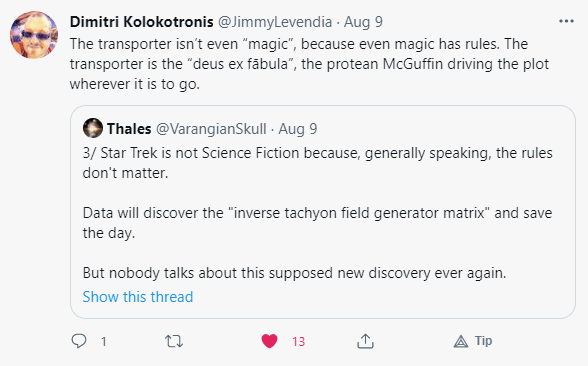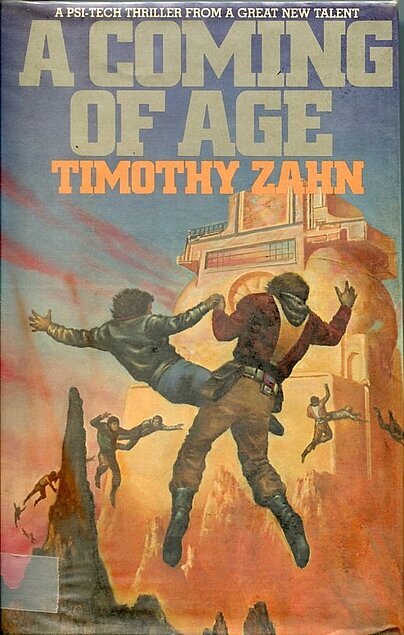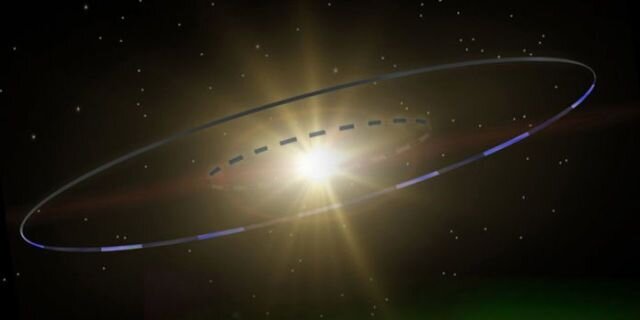Science Fiction and Science Fantasy

In my editorial line at With Both Hands, I’ve started to shy away from bookstore genre labels, as I have come to think that these marketing tools cramp the mind of both the reader and the writer.
However, lots of people still use these terms, and in general they are good enough for government work. I came across a great Twitter thread today between some of my Internet buddies on the difference between science fiction and science fantasy.
What exactly is meant by science fantasy differs quite a bit depending on the definer, which makes for a terrible definition but often interesting arguments. The thing that Thales and Dimitri are talking about is how some kinds of futuristic stories will have fantastical technologies, but those technologies often have no impact whatsoever on the setting or the plot other than establishing a tone or providing a convenient excuse to have something happen a certain way.
So while I enjoyed Star Trek: The Next Generation when it was on broadcast TV, I suspect I probably couldn’t watch it now as my tastes in this kind of fiction now tend towards things that attempt to understand the impact of a technology on the world. For as much as I have criticized mid-century movements like the Futurians, they were really good at that sort of thing. For all of Star Trek’s scientific woo, it hasn’t got much interesting to say about how society was changed forever by interstellar travel other than by magically eliminating scarcity.

Which got me thinking about a book that did a great job at taking a point of departure and then seeing what kind of society would result. Timothy Zahn’s A Coming of Age imagined a world where children, from about the age of five to puberty, are telekinetic. And everything is different. It would have to be, and Zahn does a great job at writing about it.
For example, all children are raised together in age-cohorts. This is necessitated by the reality that no parent could readily discipline an angry five-year-old who could pick them up at a whim. Strict social controls that would make the Spartans envious follow from this as a matter of civilizational survival.
All construction, mining, and power generation is done by children too. This isn’t exactly child labor however, you just don’t need heavy equipment when a group of eight year olds can pick up I-beams with ease. The biggest problem is keeping the kids focused.
One of my favorite images from the book is an older child supervising a group of younger kids spinning up a flywheel for power generation. That is way more inventive than anything Star Trek ever did.

This kind of writing is hard to do well. For example, Larry Niven’s Ringworld is one of the most remarkable ideas in his generation of fiction. But Larry didn’t realize such an object would be gravitationally unstable until a fan did the math. Larry is a good sport with his fans, and turned an oversight into a reason to write a sequel.
Tom Zahn did the work to get a PhD in Physics, but missed out due to the death of his advisor. Larry did some graduate level work in math. Others who are good at this kind of thing often have similar backgrounds. I suspect you need to know a lot and be pretty numerate to write this way. I’ve heard the writers for the first seasons of the Simpsons were of similar quality.
Entertaining stories can be written without going to these lengths. I just find that my favorites are like this.
A Coming of Age is $1.99 on Amazon right now. If you like stories that are inventive and speculative, but still manage to be adventures, why not check it out?

Comments ()